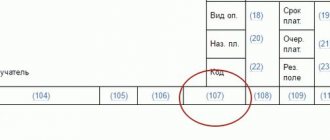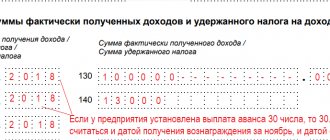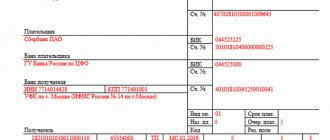Tax status of an individual
When calculating personal income tax, attention should first be paid to the issue of residence rather than citizenship. Tax residency is determined by the individual’s membership in the state’s tax system. The concepts of currency, migration, any other and tax resident are different.
The Federal Law of December 10, 2003 No. 173-FZ “On Currency Regulation and Currency Control” establishes, for example, that currency residents of Russia are every citizen of the Russian Federation and foreigners permanently residing in the territory of the Russian Federation with a residence permit. Citizens of the Russian Federation who continuously reside outside the country for at least 183 days are exempt from restrictions related to the status of currency resident.
The concept of a tax resident is defined in Article 207 of the Tax Code of the Russian Federation. This is an individual who is actually in the Russian Federation for at least 183 calendar days over the next 12 consecutive months. At the same time, the provisions of the Tax Code of the Russian Federation do not contain requirements for the continuity of the flow of the indicated 183 days (letters of the Ministry of Finance of Russia dated 02/15/2017 No. 03-04-05/8334, dated 09/01/2016 No. 03-04-05/51258, dated 04/26/2012 No. 03 -04-06/6-123, Federal Tax Service of Russia dated August 30, 2012 No. OA-3-13/ [email protected] ).
Tax resident status ensures the use of benefits and deductions when calculating income tax in all countries. An employee may be a tax resident of several states at the same time or, conversely, be a tax non-resident everywhere.
Rules for determining tax status vary from country to country. To avoid double taxation, most countries enter into appropriate agreements providing for tax exemptions, offsets, tax deductions and other tax benefits.
Article 232 of the Tax Code of the Russian Federation provides that the tax agent may not withhold personal income tax if the income is paid to a resident of a foreign state with which the Russian Federation has concluded an international agreement. For example, a resident of a foreign state can receive income on the territory of the Russian Federation. Similarly, a non-resident of the Russian Federation can receive income abroad. In accordance with such agreements, non-residents of the Russian Federation do not pay personal income tax on income from Russian companies received abroad, but include it in the income declaration (in Form 3-NDFL).
Is it necessary to apply tax deductions when calculating personal income tax on payments to non-residents?
In accordance with paragraph 1 of Art. 210 of the Tax Code of the Russian Federation, when determining the tax base for personal income tax, all income of the taxpayer that he received both in cash and in kind or the right to dispose of which he acquired is taken into account. Clause 3 of Art. 210 of the Tax Code of the Russian Federation establishes that for income for which a tax rate of 13% is provided, the tax base is determined as the monetary expression of such income subject to taxation, reduced by the amount of tax deductions enshrined in Art. 218 – 221 Tax Code of the Russian Federation .






